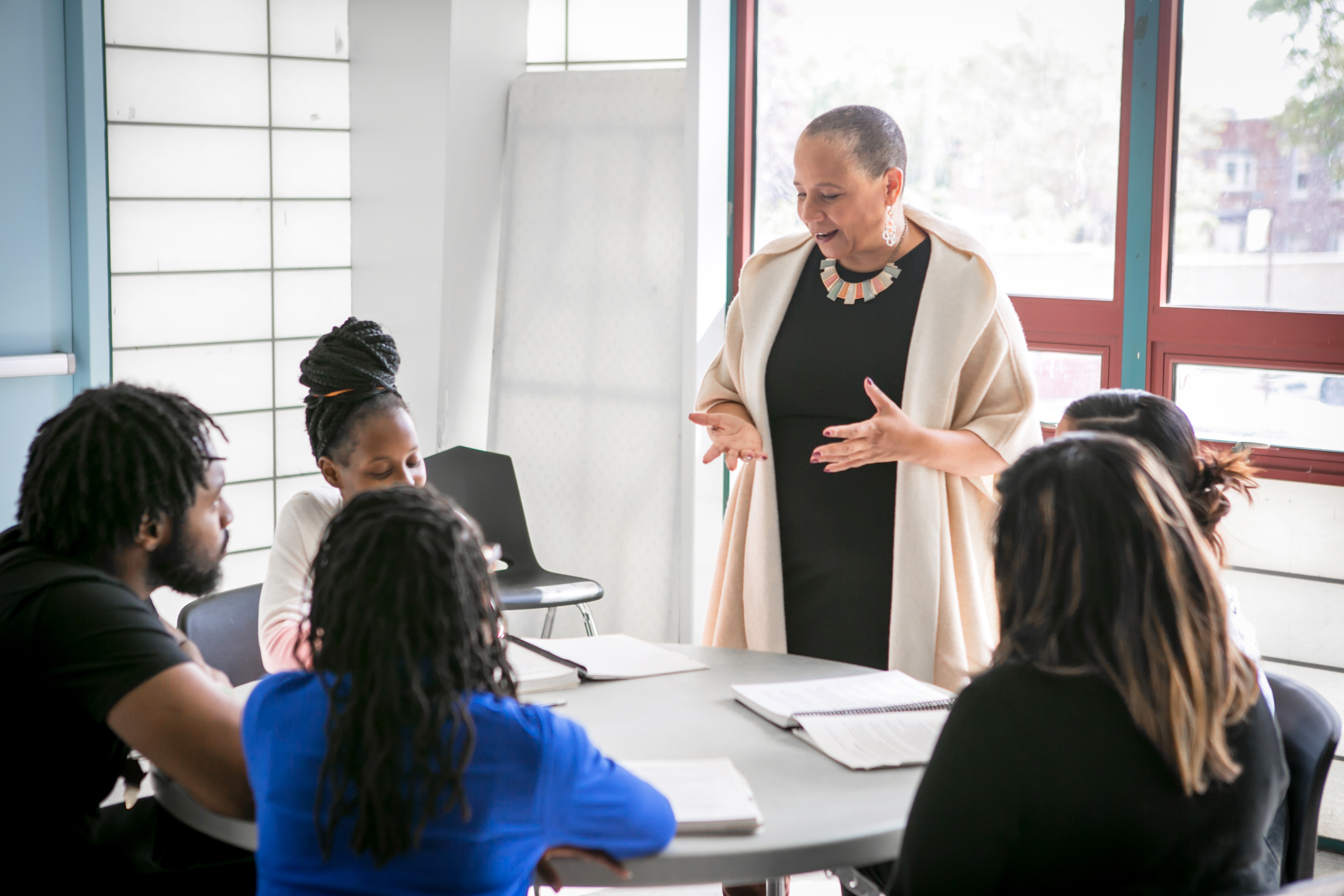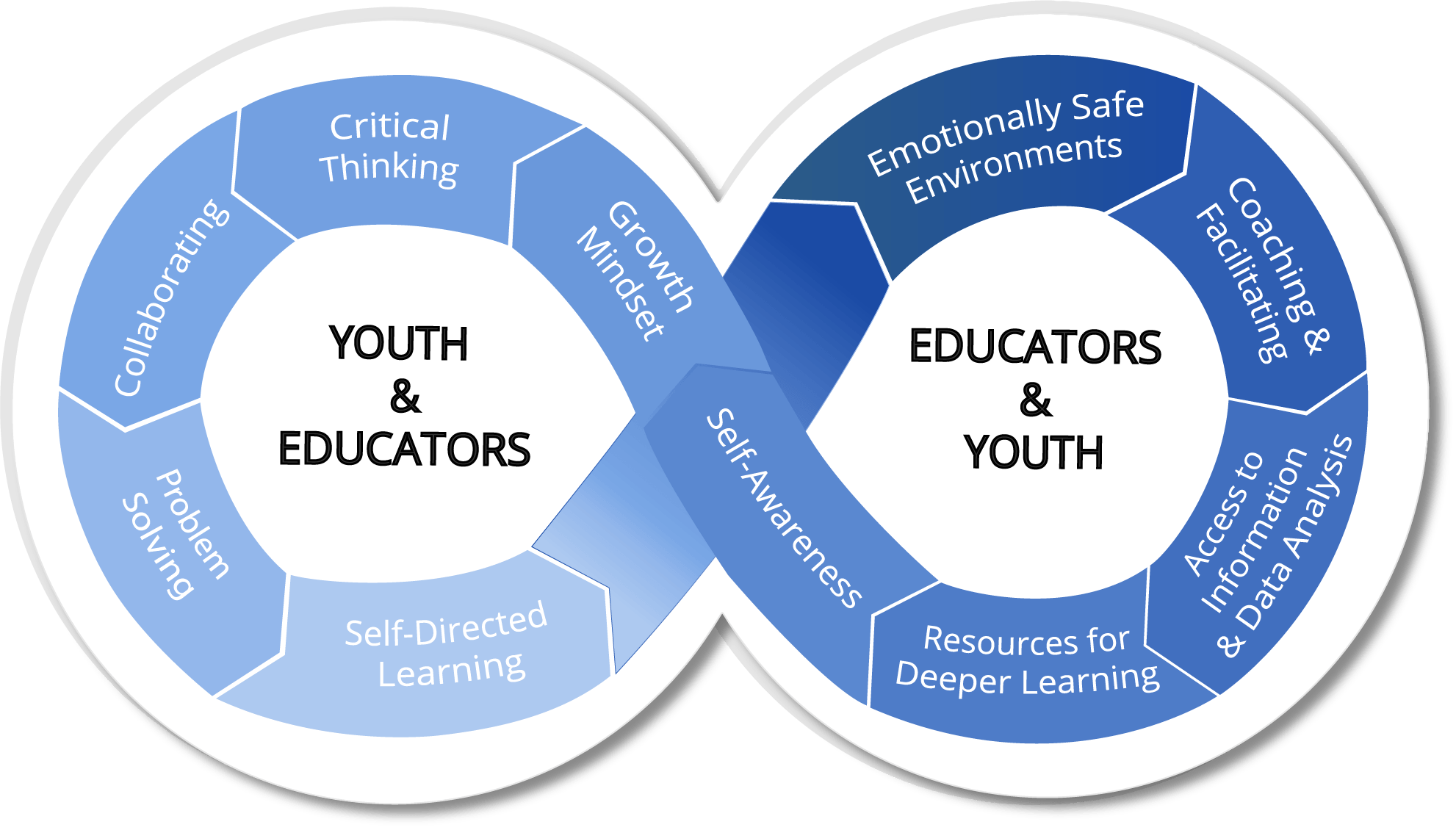
In an age marked by swift technological progress, constantly evolving global challenges, and a perpetually shifting economic landscape, the conventional routes to success for our young generations have experienced a profound metamorphosis. The skill sets and proficiency that once sufficed for prosperity in the job market have evolved, underscoring the critical importance of endowing our youth with 21st-century skills. The capacity to adapt, innovate, and navigate an increasingly intricate world is now more indispensable than ever.
Today, we embark on a journey to explore the significance of preparing our children and youth for 21st-century careers and how this preparation can empower them not only to endure but to thrive in a dynamic and demanding world. In this quest, we'll unravel the fundamental elements of this essential educational paradigm and the potential it carries for sculpting a brighter future for the leaders of tomorrow. To kick off this exploration, I'll begin by sharing my personal story.
Growing up in my inner-city neighborhood, there was a singular narrative: after high school, the path was clear, college was the next step. The Holy Grail was gaining admission to a prestigious institution, and I was no exception to this unwritten rule. College was the goal and it loomed large on the horizon.
I achieved my dream of entering college, but it was not without its challenges. My SAT scores were not a shining testament to my academic success, but I found myself at a college with a specialized program for students from inner city neighborhoods. It was a lifeline, offering remedial services and support for those who might otherwise struggle to find their place in the world of higher education.
My reason for choosing college was not entirely academic. I had a deep-rooted passion for dance, and I longed to be close to that world. It was not that I was enrolled in a dance program, but merely being in proximity to dance filled my heart with joy. However, as I began my college journey, I could not help but feel that I was there because I was supposed to be, or because I truly desired it. I was adrift, unsure of my true purpose.
Two years into college, the uncertainty overwhelmed me, and I dropped out to enter the workforce. I needed to find my calling, a sense of direction. It was not until my late twenties that clarity began to emerge. I realized my true calling lay in making a difference, specifically in working with children and families. It was a role that came naturally to me, one that I found both gratifying and fulfilling.
As I immersed myself in the world of Youth and Family Services, I recognized that my mission was to create environments where children could learn and express themselves freely, empowering them to thrive. I pursued a Ph.D. in this field, driven by the desire to have a more profound impact. The pursuit of knowledge became a vehicle for my passion.

To me, the key to preparing our children for 21st-century careers is to start by finding their purpose. Beyond traditional literacy, math, and social studies, today's children need to develop a different set of skills: problem-solving, collaboration, innovation, and productivity. These are the skills demanded by the careers of the future, and our educational systems must adapt to equip the next generation with these essential tools.
The 21st century is marked by constant change, technological innovation, and the need for adaptability. Our children and youth must not only be academically proficient but also possess the skills necessary to excel in the ever-evolving professional landscape. They must be prepared to navigate a world where careers are being continually designed and redefined.
In today's world, the focus should not solely be on getting into college but on cultivating the skills and passion that will enable our children to thrive and make a meaningful impact on society. The journey I have taken is a testament to the importance of finding one's purpose and equipping the next generation with the tools they need to succeed in the complex and dynamic world of the 21st century.
In today's rapidly evolving world, it is not just knowledge that empowers success; it is the ability to think critically, solve problems innovatively, and collaborate effectively. These skills, often referred to as 21st-century skills, are now recognized as critical for the personal and professional development of our children and youth. As various countries around the world emphasize the importance of nurturing these skills, it is essential to understand why they are so crucial for our younger generations.
The Significance of 21st Century Skills
21st-century skills encompass a range of abilities that empower individuals to thrive in an increasingly complex and dynamic world. These skills include creative thinking, innovative problem-solving, collaboration, active listening, brainstorming, visualization, and design thinking. They go beyond memorization of facts and figures and focus on equipping individuals with the tools necessary to excel in the future job market.

Why Are 21st Century Skills Critical?
- Adapting to a Changing World
The world is changing at an unprecedented pace, driven by advances in technology and globalization. To succeed in this ever-evolving landscape, our children and youth must be adaptable, capable of embracing change, and thriving in uncertainty. Developing creative thinking and problem-solving skills enables them to navigate these challenges with confidence. - Fostering Innovation
Innovation is the driving force behind scientific and technological progress. Encouraging children to develop their creative potential from an early age to foster innovation. When individuals can think creatively, they are more likely to identify problems and devise unique solutions, contributing to advancements in various fields. - Improving Academic Performance
Nurturing 21st-century skills has a direct impact on academic performance. Research has shown that children who develop their creative potential exhibit higher scores in standardized tests measuring ideational fluency and divergent thinking. They do not just understand content; they can critically analyze it, identify problems, and find solutions. - Competing Globally
A comparison between Eastern and Western educational practices reveals that Eastern cultures offer more opportunities for children to express and develop creativity. To compete globally and help our children develop 21st-century skills, the West needs to incorporate creative activities in schools. Collaborative environments and problem-solving are key components. - Early Development
Most researchers agree that nurturing creativity should begin as early as preschool. Early exposure to creative thinking and problem-solving allows children to harness their creative power and apply it to academic settings and future professional lives. Organized play, such as collaborative activities, is one effective way to promote creativity in children. - Motivated and Engaged Learning
Students who practice collaborative learning, active listening, brainstorming, and design thinking are more motivated and engaged in their learning. These skills make them more willing to tackle difficult tasks, persevere in the face of challenges, and stay motivated to learn.
Conclusion
The 21st century demands individuals who are not only knowledgeable but also possess the skills to adapt, innovate, collaborate, and think critically. As the world continues to change, it is imperative that our children and youth are equipped with these vital skills to succeed in both their personal and professional lives. Creative thinking and problem-solving are the cornerstones of progress, and nurturing these abilities from an early age is an investment in the future. By prioritizing 21st-century skills in our educational systems, we can prepare our younger generations for the challenges and opportunities that lie ahead, ensuring they are well-equipped to thrive in the dynamic world of tomorrow.
SONIA M. TOLEDO, PhD, founded Dignity of Children® in 2008 to develop children and youth holistically and reduce education inequality. She has a PhD in education and 25-plus years of experience building quality after-school programs. She focuses on emotional intelligence training, youth development, and organizational culture change. Dignity of Children® serves after-school programs nationally, providing exceptional child and youth development trainings.



